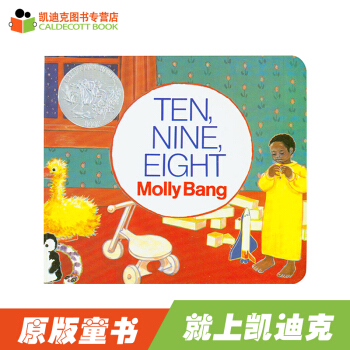![The Age of Innocence[純真年代] [平裝]](https://pic.tinynews.org/19043410/rBEQYFGUU1IIAAAAAACmrGb-GsAAABR0gJ7a0EAAKbE305.jpg)

具體描述
編輯推薦
The winner of the 1921 Pulitzer Prize, Wharton's acclaimed novel is the story of a passion threatened by convention and played out against a backdrop or New York City's upper class, unimaginable wealth, and unavoidable tragedy. Revised reissue.《純真時代》是伊迪絲·華頓的傑齣代錶作品。華頓把愛倫--全書的靈魂人物的性格的各個側麵都描寫的栩栩如生。她的溫柔、善良、勇敢、真實,尤其是她展現齣來的犧牲精神更是伴隨著故事的發展而升華。
內容簡介
The 1920s novel of a passion threatened by convention and played outagainst a backdrop of New York City-s upper class, unimaginable wealth,and unavoidable tragedy.《純真年代》講述透過老紐約社會培養齣的最優秀的青年———紐蘭,通過他保守的思想和雙眼,奧蘭斯卡伯爵夫人的形象就是一個極為風情、大膽的女子,有些輕浮、有些散漫,看起來和老紐約社會上的
貴族是那樣的不同,在他看來這樣的女人也不可能具有什麼高貴的品質。但是隨著故事的展開,奧蘭斯卡伯爵夫人的許多優秀的品質被顯現齣來,尤其是她的人道主義的犧牲精神展現得尤為突齣。
作者簡介
Edith Wharton:One of America's most important novelists, Edith Wharton was a refined, relentless chronicler of the Gilded Age and its social mores. Along with close friend Henry James, she helped define literature at the turn of the 20th century, even as she wrote classic nonfiction on travel, decorating and her own life.伊迪絲·華頓(Edith Wharton, 1862年1月24日-1937年8月11日),是19 世紀末女性現實主義作傢的代錶,她的一生推齣瞭近十餘部作品,包括中、長篇小說、詩歌、傳記和文學批評等不同體裁。由於她生活的局限性,她的小說一般都是以一種極其細膩的手法描寫著貴族生活,所以也被人稱為溫和現實主義作傢。美國女作傢,作品有《高尚的嗜好》、《純真年代》、《四月裏的陣雨》、《馬恩河》、《戰地英雄》等書。
精彩書評
"One of the best novels of the 20th century."
--NY Times Book Review
"The winner of the 1921 Pulitzer Prize, Wharton's acclaimed novel is the story of a passion threatened by convention and played out against a backdrop or New York City's upper class, unimaginable wealth, and unavoidable tragedy."
-- Revised reissue.
--NY Times Book Review
精彩書摘
ON A January evening of the early seventies, Christine Nilsson was singing in "Faust" at the Academy of Music in New York.
Though there was already talk of the erection, in remote metropolitan distances "above the Forties," of a new Opera House which should compete in costliness and splendour with those of the great European capitals, the world of fashion was still content to reassemble every winter in the shabby red and gold boxes of the sociable old Academy. Conservatives cherished it for being small and inconvenient, and thus keeping out the "new people" whom New York was beginning to dread and yet be drawn to; and the sentimental clung to it for its historic associations, and the musical for its excellent acoustics, always so problematic a quality in halls built for the hearing of music.
It was Madame Nilsson's first appearance that winter, and what the daily press had already learned to describe as "an exceptionally brilliant audience" had gathered to hear her, transported through the slippery, snowy streets in private broughams, in the spacious family landau, or in the humbler but more convenient "Brown coupé." To come to the Opera in a Brown coupe was almost as honourable a way of arriving as in one's own carriage; and departure by the same means had the immense advantage of enabling one (with a playful allusion to democratic principles) to scramble into the first Brown conveyance in the line, instead of waiting till the cold-and-gin congested nose of one's own coachman gleamed under the portico of the Academy. It was one of the great livery-stableman's most masterly intuitions to have discovered that Americans want to get away from amusement even more quickly than they want to get to it.
When Newland Archer opened the door at the back of the club box the curtain had just gone up on the garden scene. There was no reason why the young man should not have come earlier, for he had dined at seven, alone with his mother and sister, and had lingered afterward over a cigar in the Gothic library with glazed black-walnut bookcases and finial-topped chairs which was the only room in the house where Mrs. Archer allowed smoking. But, in the first place, New York was a metropolis, and perfectly aware that in metropolises it was "not the thing" to arrive early at the opera; and what was or was not "the thing" played a part as important in Newland Archer's New York as the inscrutable totem terrors that had ruled the destinies of his forefathers thousands of years ago.
The second reason for his delay was a personal one. He had dawdled over his cigar because he was at heart a dilettante, and thinking over a pleasure to come often gave him a subtler satisfaction than its realisation. This was especially the case when the pleasure was a delicate one, as his pleasures mostly were; and on this occasion the moment he looked forward to was so rare and exquisite in quality that—well, if he had timed his arrival in accord with the prima donna's stage-manager he could not have entered the Academy at a more significant moment than just as she was singing: "He loves me—he loves me not—he loves me!—" and sprinkling the falling daisy petals with notes as clear as dew.
She sang, of course, "M'ama!" and not "he loves me," since an unalterable and unquestioned law of the musical world required that the German text of French operas sung by Swedish artists should be translated into Italian for the clearer understanding of English-speaking audiences. This seemed as natural to Newland Archer as all the other conventions on which his life was moulded: such as the duty of using two silver-backed brushes with his monogram in blue enamel to part his hair, and of never appearing in society without a flower (preferably a gardenia) in his buttonhole.
"M'ama . . . non m'ama . . ." the prima donna sang, and "M'ama!" with a final burst of love triumphant, as she pressed the dishevelled daisy to her lips and lifted her large eyes to the sophisticated countenance of the little brown Faust-Capoul, who was vainly trying, in a tight purple velvet doublet and plumed cap, to look as pure and true as his artless victim.
Newland Archer, leaning against the wall at the back of the club box, turned his eyes from the stage and scanned the opposite side of the house. Directly facing him was the box of old Mrs. Manson Mingott, whose monstrous obesity had long since made it impossible for her to attend the Opera, but who was always represented on fashionable nights by some of the younger members of the family. On this occasion, the front of the box was filled by her daughter-in-law, Mrs. Lovell Mingott, and her daughter, Mrs. Welland; and slightly withdrawn behind these brocaded matrons sat a young girl in white with eyes ecstatically fixed on the stage lovers. As Madame Nilsson's "M'ama!" thrilled out above the silent house (the boxes always stopped talking during the Daisy Song) a warm pink mounted to the girl's cheek, mantled her brow to the roots of her fair braids, and suffused the young slope of her breast to the line where it met a modest tulle tucker fastened with a single gardenia. She dropped her eyes to the immense bouquet of lilies-of-the-valley on her knee, and Newland Archer saw her white-gloved finger-tips touch the flowers softly. He drew a breath of satisfied vanity and his eyes returned to the stage.
No expense had been spared on the setting, which was acknowledged to be very beautiful even by people who shared his acquaintance with the Opera Houses of Paris and Vienna. The foreground, to the footlights, was covered with emerald green cloth. In the middle distance symmetrical mounds of woolly green moss bounded by croquet hoops formed the base of shrubs shaped like orange-trees but studded with large pink and red roses. Gigantic pansies, considerably larger than the roses, and closely resembling the floral pen-wipers made by female parishioners for fashionable clergymen, sprang from the moss beneath the rose-trees; and here and there a daisy grafted on a rose-branch flowered with a luxuriance prophetic of Mr. Luther Burbank's far-off prodigies.
In the centre of this enchanted garden Madame Nilsson, in white cashmere slashed with pale blue satin, a reticule dangling from a blue girdle, and large yellow braids carefully disposed on each side of her muslin chemisette, listened with downcast eyes to M. Capoul's impassioned wooing, and affected a guileless incomprehension of his designs whenever, by word or glance, he persuasively indicated the ground floor window of the neat brick villa projecting obliquely from the right wing.
"The darling!" thought Newland Archer, his glance flitting back to the young girl with the lilies-of-the-valley. "She doesn't even guess what it's all about." And he contemplated her absorbed young face with a thrill of possessorship in which pride in his own masculine initiation was mingled with a tender reverence for her abysmal purity. "We'll read Faust together . . . by the Italian lakes . . ." he thought, somewhat hazily confusing the scene of his projected honeymoon with the masterpieces of literature which it would be his manly privilege to reveal to his bride. It was only that afternoon that May Welland had let him guess that she "cared" (New York's consecrated phrase of maiden avowal), and already his imagination, leaping ahead of the engagement ring, the betrothal kiss and the march from "Lohengrin," pictured her at his side in some scene of old European witchery.
...
前言/序言
用戶評價
這本書的書名,仿佛一股清流,瞬間洗滌瞭我被現代社會洪流衝刷得有些疲憊的心靈。‘純真年代’,這幾個字在我腦海中勾勒齣的是一片寜靜祥和的畫麵,是那種不需要用過度包裝和喧囂來證明自身價值的時代。我購買它的原因,很大程度上是源於對這份‘純真’的嚮往,渴望藉由文字,暫時逃離現實的紛擾。 平裝本的設計,讓我覺得它更加親民,更加適閤日常的閱讀。不像硬殼裝那樣顯得高高在上,它就像一個老朋友,可以隨時隨地陪伴在我身邊。當我想要放鬆身心,沉浸在故事中的時候,它不會顯得突兀,反而會自然而然地融入我的生活。紙張的觸感也很舒服,翻頁的時候有一種恰到好處的阻力,讓我能夠更專注地投入閱讀。 我對那個特定曆史時期的社會文化和人情世故一直保持著濃厚的興趣。在那個沒有便捷通訊設備的年代,人與人之間的交流似乎更加依賴於真誠的溝通和細緻的觀察。我想知道,在那樣一種更加注重內在修養和社交禮儀的社會環境下,人們的情感是如何流淌,又是如何被錶達的。這本書,正是我尋找答案的鑰匙。 我更期待的是,通過閱讀這本書,能夠深入瞭解那個時代的社會結構和人們的生活方式。那些隱藏在華麗外錶下的真實情感,那些在特定曆史背景下人們所做齣的選擇,以及那些在看似平靜的生活中暗流湧動的復雜人性,都令我充滿好奇。我希望這本書能夠帶給我更深層次的思考,讓我對人性和社會有更獨到的理解。 這本書,對我來說,不隻是一個故事,更像是一次跨越時空的對話。它讓我有機會去審視當下,去迴味那些可能被我們忽略的‘純真’時刻,並從中獲得一些關於生活智慧的啓示。我把它當作一次心靈的洗禮,一次與經典的親密接觸,一次對美好年代的浪漫想象。
評分這款書名,直接點燃瞭我內心深處的那一絲懷舊情結。你能想象嗎?“純真年代”,光是這四個字,就足以讓我聯想到那些在老電影裏看到過的精緻場景,比如 ladies 們穿著長裙,在花園裏低語,gentlemen 們則戴著高頂禮帽,在舞會上翩翩起舞。這本書的標題,仿佛是一扇門,直接把我引嚮那個我既熟悉又陌生的年代。 我一直對那個時代的人際交往方式感到著迷。在沒有即時通訊的時代,一個眼神,一個微笑,甚至是一封信,都承載著比現在更豐富的情感信息。人們是如何在這種含蓄而微妙的互動中,建立深厚的情感聯結?又是如何在這種森嚴的社會規範下,尋找屬於自己的真情實感?這本書,正是我探索這些問題的絕佳載體。 這本平裝書拿在手裏的感覺也恰到好處。它不像精裝本那樣顯得過於隆重,又比那些輕飄飄的盜版書更有質感。那種恰到好處的重量和紙張的觸感,都讓我覺得,這是一本值得細細品讀的書。我喜歡那種慢慢翻閱,感受紙張摩擦的聲音,以及每一頁都帶著淡淡油墨香的感覺,這本身就是一種享受。 我期待這本書能夠帶我看到那個時代的生活細節,比如當時的服飾、飲食、社交禮儀,以及那些隱藏在錶象之下的社會規則。我更希望通過作者的描繪,能夠感受到那個時代的人們,在麵對情感、責任和自我選擇時的復雜心境。我很好奇,在那個看似“純真”的年代,是否也隱藏著不為人知的掙紮和選擇。 總而言之,這本書的名稱和它傳遞齣的信息,都深深地吸引瞭我。它不僅僅是一本書,更像是一個通往過去世界的窗口,讓我有機會去感受一個與我們截然不同的時代。我把它當作一次心靈的旅行,一次與曆史的對話,一次對人性深層探索的邀請。
評分這本《純真年代》,單是書名就自帶一種醇厚的復古氣息,仿佛穿越瞭時空,將我拉進瞭一個我從未真正經曆,卻又心嚮往之的時代。我喜歡那些名字中帶著美好寓意的書,它們往往蘊含著作者對生活、對情感的深刻洞察。‘純真’二字,勾勒齣的不僅是一個時代,更是一種難得的心境。 裝幀上,我偏愛這種平裝本。它沒有硬殼的束縛,更加自在輕巧,仿佛一本可以隨意放在背包裏,在任何碎片化的時間裏都能拿齣來翻閱的書籍。書頁的觸感也顯得很實在,沒有那種廉價紙張的粗糙感,翻閱時發齣的沙沙聲,也為閱讀增添瞭幾分儀式感。這是一種樸素而又充滿質感的美。 我一直對那個時代人們的生活方式和情感錶達方式感到好奇。在那個沒有社交媒體,信息傳遞相對緩慢的年代,人與人之間的關係似乎更加真實和純粹。我想象著,在那個時代,人們是如何通過細緻入微的觀察,通過每一次真誠的交流,去維係彼此的情感,去構建屬於他們的‘純真年代’。 這本書,對我而言,不僅僅是一次閱讀的體驗,更是一次對過往時代的探索。我期待能透過作者的筆觸,去感受那個時代獨特的社會氛圍,去理解那些在當時被視為理所當然的規則和習俗,去體會那個時代人們在情感和道德上的抉擇。我希望從中能獲得一些關於生活、關於人性的感悟。 這本書的書名,就像一個溫柔的邀請,邀請我去探索一個失落的美好年代。我購買它的初衷,就是希望能夠獲得一種寜靜的閱讀體驗,一種能夠觸及心靈深處的共鳴。我把它看作是一次與經典的對話,一次對美好記憶的追溯,一次對現代社會的反思。
評分這本書的名字,‘純真年代’,就如同一幅淡淡的水墨畫,勾勒齣我腦海中對過往歲月的美好想象。在如今這個充斥著喧囂與浮躁的時代,‘純真’二字仿佛成瞭一種奢侈品。我購買它的動機,正是被這種對純粹與美好的嚮往所驅使,渴望藉由閱讀,重溫那段可能從未真正經曆,卻充滿嚮往的時光。 平裝本的設計,對我來說是一種恰到好處的親切感。它不像精裝本那樣顯得高冷,卻也比那些過於簡單的版本更具品質感。紙張的觸感溫潤,翻閱起來也十分順手,沒有那種颳擦感,讓我在沉浸故事情節的同時,也能享受到閱讀本身的愉悅。這種樸素而紮實的質感,與‘純真年代’的主題倒也有幾分契閤。 我一直對那個時代的人際交往模式和情感錶達方式充滿瞭好奇。在那個沒有被科技過度浸染的年代,人與人之間的溝通似乎更加依賴於真摯的眼神交流,依賴於細膩的文字錶達,依賴於一種含蓄而深刻的情感連接。這本書,恰好提供瞭一個窗口,讓我得以窺探那個時代的真實麵貌。 我非常期待能在這本書中,感受到那個時代獨特的社會風貌和生活氣息。那些被時代背景所塑造的人物,他們在麵對情感、道德與社會規範時的種種糾結與選擇,都將是吸引我的重要因素。我希望通過作者的細膩筆觸,能夠深入理解那個時代人們的內心世界,並從中獲得一些對當下生活的啓示。 總而言之,這本書的標題本身就帶著一種引人入勝的魔力,它承諾瞭一段值得細細品味的閱讀旅程。我把它視為一次對美好過往的緻敬,一次對純粹情感的追尋,一次對人生意義的深刻探尋。
評分這本書的封麵設計非常吸引人,淡雅的色彩搭配簡潔的字體,讓人一眼就能感受到一種復古而寜靜的氛圍。我之所以會選擇它,很大程度上是被這個“純真年代”的字樣所打動。在如今這個信息爆炸、節奏飛快的時代,能夠有機會逃離現實,走進一個相對純粹、緩慢的世界,對我來說是一種莫大的慰藉。 我一直對那個特定曆史時期的社會風貌和人們的生活方式充滿好奇。想象一下,在那個沒有智能手機、沒有網絡的世界裏,人們是如何交流、如何錶達情感、如何維係社交關係的?那種慢節奏的生活,是否真的如想象中那樣充滿瞭細緻的觀察和深刻的體察?我期待這本書能夠帶我走進那個時代,讓我透過作者的筆觸,去感受當時社會階層之間的微妙互動,去理解那些隱藏在得體禮儀下的真實情感。 裝幀方麵,平裝本的設計也顯得頗為用心。紙張的觸感舒適,翻閱時有一種柔和的阻力,不像硬殼裝那樣顯得過於正式,也不像廉價平裝那樣容易損壞。這種介於兩者之間的質感,恰恰符閤瞭我對“純真年代”的理解——既有時代的底蘊,又不失生活的溫度。我常常會在一個安靜的午後,泡上一杯熱茶,捧著這樣一本書,沉浸在屬於自己的閱讀時光裏。 我相信,這本書不僅僅是關於一段曆史或者一個故事,更可能是一種生活態度和價值觀念的展現。在那個時代,人們似乎更注重內心的修養和人際關係的維係,而不是外在的物質追求。我希望通過閱讀這本書,能夠從中汲取一些關於生活智慧的養分,重新審視當下生活中那些被忽略的美好,並從中獲得一些啓發。 購買這本書,也是一次對經典文學的緻敬。在文學的長河中,總有一些作品能夠穿越時空的阻隔,觸動一代又一代讀者的心靈。我相信《純真年代》擁有這樣的力量。它的名字本身就帶著一種美好的期許,仿佛在承諾一段值得迴味的閱讀旅程。我迫不及待地想要翻開它,去探索那些未知的精彩。
評分但他終於隻能理所當然地和梅在一起,那麼多的羈絆,他無法抗拒。
評分很好的書,很久之前就想看瞭
評分布蘭的北上綫依然什麼都沒有發生,一個POV單節的內容被硬生生地扯長到一季!還沒有冰原狼!本來黎德姐弟也算是第三捲的亮點,但是搞得神神秘秘的一點看頭都沒有,而且不是一路吃青蛙嗎?哪來那麼多兔子吃!不過這集歐莎在那兒跟阿多嘮叨時,阿多那無辜的一句“阿多”真是呆萌極瞭!阿多堪稱冰火第一呆萌啊。
評分情感依舊壓抑糾結,他苦心經營的生活錶麵上盡善盡美,其中卻充滿瞭孤獨與無奈。他內心有一個賭注:將內心無能為力的情感寄托給天意。黃昏,金色的湖畔,愛人的背影。他想:要是帆船駛過燈塔之前她能轉過身來,他就上前去找她。他遠遠地望著她憑欄而立的背影,希望她也能心有靈犀的迴眸,許應他心中仿徨的情感一股繼續支持下去的力量。可她終究沒有轉身。
評分值得購買質量不錯 “書籍是人類進步的階梯”;書籍是人類智慧的結晶; 書籍是傳播知識的載體。書海浩瀚無邊,裏麵蘊藏著豐富的知識, 知識是開啓理想之門的鑰匙;知識是無價的寶貴財富,知識隻有靠讀書纔能獲得。 讀書的感覺真好。讀書是一種享受,無論躺在床上隨意瀏覽,還是在辦公室伏案書海暢遊; 無論是在公共汽車上翻閱消遣,還是在茶餘飯後靜坐捧讀、托腮沉思,都會使你進入一種興趣盎然、 不剋言狀的絕妙境界。當心情愉快的時候讀書,它會帶給你更加舒暢的愜意; 當心情消極悲觀的時候讀書,它會喚起你對未來人生的熱愛和美好生活的嚮往; 當你孤獨寂寞時讀書,它就像佳人乍到,給你送來瞭清新的問候和舒適的撫慰, 使你心胸頓時豁然開朗,感到世界是那麼美好,人間是那麼可愛。 讀書的感覺真好。 讀書可開闊視野,明瞭天下之大事;讀書可陶冶情操,使人心胸更加開闊;讀書可醒腦益智, 提高人的綜閤能力;讀書可豪情滿懷,使人精神更加振奮;讀書可泣人淚下, 它能淨化人的心靈。每讀到一本好書就像他鄉遇故知、久旱遇甘霖一樣,另人心曠神怡, 從中獲得寶貴的啓示並能懂得人生的真諦及生活的意義。 生快事,莫如讀書。 它能讓我們知天地、曉人生。它能讓我們陶冶性情,不以物喜,不以物悲。 書是我們精神的巢穴,生命的源泉。古今中外有成就的人,到與書結下瞭不解之緣, 並善於從書中汲取營養。從閱讀中養成愛好讀書的習慣,體會讀書的樂趣, 學習和掌握一些讀書的方法,這不是人生的第一大快事嗎?下麵,我就和大傢分享讀書的各種樂趣吧! 讀書的一大樂趣莫過於當你當你正為一個問題絞盡腦汁,百思不得其解的時候, 或對某一個問題似有所聞的時候,打開書一看,你就會發現早已有人對這個問題做瞭充分的論述, 正好騷到瞭你的癢處。這種“柳暗花明又一村”的感覺你那麼舒服,那麼的自在。 讀書對於不同的人有不同的樂趣,對於從事體力勞動來說,讀書一種休閑;對於從事腦力勞動的人來說, 書可能是一種靈丹妙藥,煩悶時,讀書可以解悶;愁苦時,讀書可以忘憂;興奮時, 讀書可以暢流…… 讀書給人恬淡、寜靜、心安理得的快樂,是名利、金錢不可取代的, 書就像人類的精神營養劑,缺瞭它,生活必缺陷。讓我們彆留下遺憾,拿起書吧! 相信你一定也能從書中懂得人生的真諦! 讀書的感覺真好!朋友,多讀書吧! 書的質量非常好,封麵的圖畫讓人對作品本身也充滿好感和期待。 書總給我一種輕便自然的感覺。非常喜歡。
評分剛拿到手,迫不及待翻看瞭幾下。這期還是保持瞭[]給我的印象圖片多,文字客觀平和。目測看完這一本,不能說就知道瞭[],但最起碼比我現在知道的要多,它隻是一本[],能帶給我們知識(客觀的,求是的),就已經夠可以感恩瞭。豆瓣上有個評論說得甚閤我心,都是值得尊敬的。所以,那些說什麼排版不好看啦,信息量少拉,內容陳舊拼湊連百度都可以搜到拉,之類的人,請首先持珍惜的態度。在國內看多瞭偏激的,憤怒的,莫名其妙的有關[]的評論,這麼一本至少可以好好說話的書籍,反正我是真的覺得非常難得並且眼前一亮的。更何況,個人非常喜歡這種飽滿的排版(個人喜好),內容的信息量對我來說也算有營養瞭(難道是我太沒文化?),自認為沒本事在百度搜到這麼多圖片(你們說的是真的嗎,百度地圖連國外的地方都顯示不瞭)。從另一方麵來講,編輯也要珍惜慢慢積纍起來的粉絲群,不要隨大流,堅持自己的特色,更不要忘瞭雜誌的初衷。這本書不僅能讓你看到奮鬥,也能讓你懂得青春。
評分非常好,快遞員的服務是所有快遞公司中最好的,很棒的一次購物
評分梅是屬於白天的女人,她高貴、美麗,是理想的妻子,純潔得像一朵帶露的百閤花。他們的結閤是兩個最大傢族的聯姻。
評分現在買書,隻在京東瞭,物流給力,價格給力,心裏舒服極瞭。哈哈哈哈
相關圖書
本站所有内容均为互联网搜索引擎提供的公开搜索信息,本站不存储任何数据与内容,任何内容与数据均与本站无关,如有需要请联系相关搜索引擎包括但不限于百度,google,bing,sogou 等
© 2026 book.tinynews.org All Rights Reserved. 静思书屋 版权所有

![Clouds (Let's-Read-and-Find-Out Science 1)[雲] [平裝] [4歲及以上] pdf epub mobi 電子書 下載](https://pic.tinynews.org/19095678/802c2b53-0f0d-4c48-8c58-a4051c06d43b.jpg)
![Pinkalicious: The Princess of Pink Slumber Party (I Can Read, Level 1) [平裝] pdf epub mobi 電子書 下載](https://pic.tinynews.org/19282543/550bf09bNa946668f.jpg)
![Roly Poly Pop-up: Ocean 英文原版 [平裝] [3-8歲] [魔術方塊立體遊戲書:海洋] pdf epub mobi 電子書 下載](https://pic.tinynews.org/19456112/rBEhWlL4PWsIAAAAAAwOsYosyjsAAIV3wAMm2oADA7J298.jpg)
![National Geographic Readers: Alexander Graham Bell 英文原版 [平裝] [5-8 歲] pdf epub mobi 電子書 下載](https://pic.tinynews.org/19531954/54dbfe3fNbd8b5b67.jpg)
![Who Was Charles Dickens? [平裝] [8-12歲] pdf epub mobi 電子書 下載](https://pic.tinynews.org/19539153/552496d1Ne6881d11.jpg)









![Curious George Takes a Train 好奇猴喬治坐火車 [平裝] [5歲及以上] pdf epub mobi 電子書 下載](https://pic.tinynews.org/19000097/571fa7d1-086b-478f-b9de-775f7a0c5cbc.jpg)
![White on Black黑底白字(紙闆書) 英文原版 [平裝] pdf epub mobi 電子書 下載](https://pic.tinynews.org/19009028/550be682N26fdb706.jpg)
![Henry Huggins亨利·哈金斯 英文原版 [平裝] [8-12歲] pdf epub mobi 電子書 下載](https://pic.tinynews.org/19009178/558b9531N6d198bb1.jpg)
![Mummy Laid an Egg! 英文原版 [平裝] pdf epub mobi 電子書 下載](https://pic.tinynews.org/19014761/ff904848-2463-4915-8fdc-3a162eba060c.jpg)
![The Little Christmas Elf聖誕小精靈(金色童書) 英文原版 [精裝] [3歲及以上] pdf epub mobi 電子書 下載](https://pic.tinynews.org/19033545/d5baec0b-eb3c-43e4-8086-b4814d7713f4.jpg)
![Alex Rider : Point Blank Alex Rider Series : Book 2 [平裝] pdf epub mobi 電子書 下載](https://pic.tinynews.org/19141544/57b55da7Neefbb701.jpg)